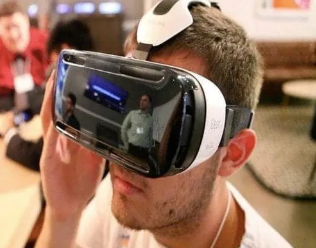The fitness industry has always been at the forefront of innovation, constantly evolving to meet the changing needs and preferences of health-conscious individuals. In recent years, the integration of technology into fitness routines has significantly transformed the way we approach health and wellness. From wearable fitness trackers to virtual reality workouts, technology is revolutionizing the fitness industry, promising a future that is more personalized, accessible, and data-driven.
One of the most significant advancements in fitness technology is the rise of wearable devices. Fitness trackers and smartwatches, such as Fitbit and Apple Watch, have become ubiquitous, providing users with real-time data on their heart rate, sleep patterns, calorie burn, and more. These devices not only help individuals monitor their progress but also provide personalized feedback and goals, making workouts more efficient and effective.
In addition to wearables, mobile apps have also become a staple in the fitness world. Apps like MyFitnessPal and Strava offer features ranging from diet tracking to route mapping for runners and cyclists. These apps provide a wealth of data that can be used to tailor workouts and nutrition plans to an individual’s specific needs and goals.
Virtual reality (VR) and augmented reality (AR) are also making their way into the fitness industry, offering immersive workout experiences that go beyond the traditional gym setting. VR fitness games, such as Beat Saber and BoxVR, combine exercise with entertainment, making workouts more enjoyable. On the other hand, AR apps like Pokemon Go encourage physical activity by integrating it into a game.
Artificial Intelligence (AI) is another technology that is set to transform the fitness industry. AI-powered fitness coaches can provide personalized workout plans based on an individual’s fitness level, goals, and preferences. These virtual coaches can also adapt workouts in real-time based on the user’s performance, making them a powerful tool for personalization.
The future of fitness also promises greater accessibility. With the rise of online fitness platforms and on-demand workout classes, individuals can now exercise at their own pace, in their own time, and in the comfort of their own homes. This trend has been accelerated by the COVID-19 pandemic, which has forced many people to seek out home workout solutions.
While technology is revolutionizing the fitness industry, it’s important to note that it is a tool to enhance, not replace, traditional fitness methods. The future of fitness will likely see a blend of technology and traditional workouts, offering a more holistic approach to health and wellness.
In conclusion, the future of fitness is bright, with technology playing a pivotal role in shaping the industry. As we continue to embrace these advancements, we can look forward to a future where fitness is more personalized, accessible, and enjoyable than ever before.
+++++++This Device Has Revolutionized Exercise+++++++
#fitness #Virtualreality #Technology #Betterhealth

